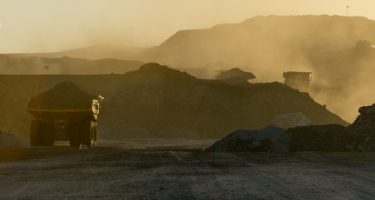It's warm out when it ought to be cold. It’s snowing in springtime. Odd weather variances and seemingly worse natural disasters in recent years have kept two weighty topics—climate change and the depletion of natural resources—front and center.
From 2000 to 2012, the Pennsylvania Department of Environmental Protection (DEP) concluded that there were 24 cases of “failure to prevent migrations [of natural gas and potentially other substances] to fresh groundwater,” in an assessment and risk analysis by Ingraffea et al. The state likewise confirmed more than 100 instances of water-well contamination from oil-and-gas activities since 2005, according to a 2014 piece from the journal Proceedings of the National Academy of Sciences of the United States.
The exploitation of natural resources can have severe environmental consequences: depletion of the ozone layer, increased incidence of natural disasters, species extinction, and much more. Here, two Best Lawyers–recognized attorneys share their thoughts on the potentially momentous implications.
David Mandelbaum
Shareholder at Greenberg Traurig, LLP, Philadelphia
Recognized for Environmental Law Since 2006
Is there any legislation that could help fix problems related to resource depletion?
Our [PA] Supreme Court has held that any land-use regulation that entirely excludes any lawful land use from a municipality—typically a small one—is exclusionary and violates our due-process clause. The curative amendment remedy makes restrictive regulation difficult. The courts have not yet fleshed out what implications our newly reinvigorated Environmental Rights Amendment means for this issue. That being said, almost every acre of Pennsylvania has been farmed and timbered for at least one season since European settlement, so there are no virgin natural resources [here].
How can attorneys help address these issues?
If we want efficient and effective economy-wide [greenhouse-gas] regulation, we probably need better statutory authority—and on a national level. Lawyers can draft that, but it would require a political consensus that isn’t there. Note that there is a pending petition [with] the Environmental Quality Board contending that the Environmental Rights Amendment constitutionally requires climate-change mitigation rulemaking.
Joseph K. Reinhart
Shareholder at Bast Calland, Pittsburgh
Recognized for Environmental Law Since 2003
Much state environmental law is based on federal statutes. How can environmental-law attorneys help?
Environmental lawyers can be instrumental in sustaining rural communities and protecting natural resources by helping landowners and businesses understand the complex and interrelated laws and regulations governing so many aspects of economic development. Many municipalities in Pennsylvania have passed ordinances designed to protect residents in rural areas from environmental harm associated with natural resource development. Sorting out the laws and ordinances applicable to these activities, and determining which governmental authority has jurisdiction over them, are tasks well-suited to attorneys trained in environmental law.
Many states have developed their own climate-change plans. Do you think Pennsylvania will do that?
In 2018, Governor Tom Wolf issued an executive order establishing a Climate Action Plan for the commonwealth. The plan seeks to achieve, by 2025, a 26 percent reduction in greenhouse-gas emissions from 2005 levels. It also contemplates the development of a cap-and-trade program to limit carbon-dioxide emissions.
Will the passage of certain laws be necessary?
Wolf’s executive order requiring the development of a cap-and-trade program has been met by stiff resistance from parties concerned about the costs and potential adverse economic consequences associated with a carbon tax. In December 2019, members of the Pennsylvania House and Senate referred bipartisan companion bills, known as the Pennsylvania Carbon Dioxide Cap and Trade Authorization Act, to their respective environmental and energy committees. Regardless of the outcome, any laws dealing with a cap-and-trade program in Pennsylvania are likely to receive considerable attention and require input from environmental lawyers representing all interested parties.
































